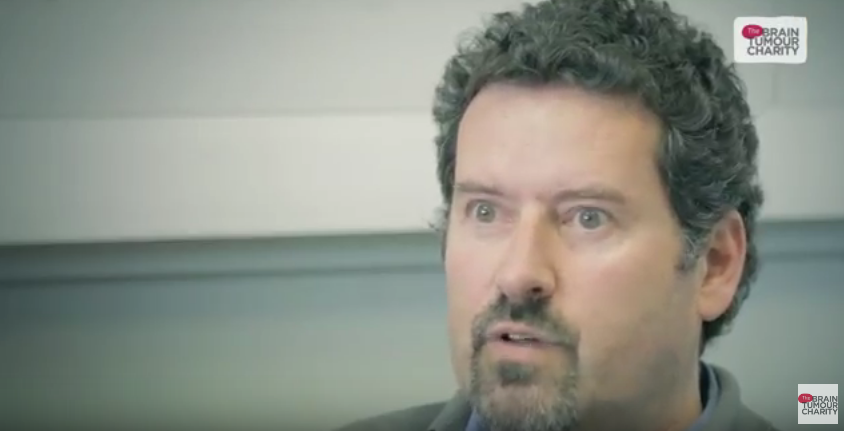The pathway to new drugs for medulloblastoma
Fast facts
- Official title: Identification, in-vivo modelling and therapeutic targeting of superenhancer-driven oncogenes in Group 3 medulloblastoma
- Lead researcher: Professor Louis Chesler
- Where: The Institute of Cancer Research, Sutton, UK
- When: April 2017 – March 2022
- Cost: £1,455,452 over a five-year period
- Research type: Paediatric, Medulloblastoma (High Grade), Academic
- Grant round: Quest for cures
This programme of work encompasses a bench-to-bedside translational effort between three research groups led by Professor Louis Chesler at the ICR.
Professor Chesler, along with Professor Bill Weiss at the University of California San Francisco (UCSF) in the USA and Professor Stefan Pfister at the German Cancer Research Center (DKFZ) in Heidelberg, aims to demonstrate that key drivers of medulloblastoma tumour formation can be identified (from patient material), modelled, and treated in clinical trials. Their ultimate goal is to save the lives of children with group 3 medulloblastoma by making new, effective drugs.
What is it?
Previously, Professor Chesler used patient samples to identify cancer-driving genes (aka oncogenes) and cell processes that aid the growth and survival of group 3 medulloblastoma. This work directed the research to a cell process called the TGFβ pathway and specifically a molecule in the pathway called ALK5. The TGFβ pathway is a signalling pathway in the cell involved in a wide range of essential processes including cell maintenance and cell death.
Using our funding, the team are expanding their understanding of the TGFβ pathway, as well as identifying additional oncogenes and cellular processes that support group 3 medulloblastoma growth and survival. Specifically, the team will be:
- using large sets of genomics data to identify and validate new drivers of Group 3 medulloblastoma
- modelling group 3 medulloblastoma in stem cells to assess the roles of molecules in the TGFβ pathway
- studying the formation of group 3 medulloblastoma in pre-clinical models
- targeting group 3 medulloblastomas in pre-clinical models with new potential therapies.
An exciting discovery that the team made during their studies was that a protein called SRC may be driving group 4 medulloblastoma. They’re exploring how SRC supports tumour growth, and how they can stop it with drugs. This work is going on in parallel with the discoveries about group 3 tumours and we look forward to seeing where it takes the research in the near future.
Why is it important?
Professor Chesler’s grant has brought together some of the leading experts in the field from around the world to use innovative new technologies and approaches to overcome the hurdles that are currently faced in research. The Institute of Cancer Research in London and the University of California San Francisco bring expertise in the development of research models, and the team at the German Cancer Research Centre (DKFZ) in Heidelberg are experts in genome sequencing and signalling in children’s brain tumours. Together they’ll combine their knowledge in genomics, stem-cell biology and drug discovery to investigate the formation of group 3 and group 4 medulloblastomas and assess whether the drivers of tumour formation can be therapeutically targeted.
This work aims to improve group 3, and now also group 4, medulloblastoma research models enabling high-quality research to be conducted into the origin and drivers of the tumours. Additionally, this project is keeping the goal of getting new treatments to the clinic at the forefront. The researchers are testing new drugs and identifying ‘druggable’ targets through this work and accelerating candidate drugs into clinical trials.
Who will it help?
Medulloblastoma is the most common type of high grade brain tumour in children, occurring most often in children under ten years old. Group 3 and Group 4 medulloblastomas are the most aggressive and hardest to treat of the medulloblastoma sub-types. Survival of children with these types of medulloblastoma remains devastatingly low and treatment options are limited, showing the urgent need for greater knowledge and new treatments.
This research aims to provide new research models to study the tumours, shedding light on the cell of origin and the genes that drive tumour formation, but also to find new therapeutic targets and treatments. Improving the survival of children with aggressive medulloblastoma is at the heart of this research work.
This research will generate models and data that will underpin a new generation of clinical trials. The aim is to increase the survival of group 3 medulloblastoma patients through rational targeting of the genes that underpin maintenance of these tumours.
Professor Louis Chesler
Milestone
- So far, the team have identified a role for a cancer-causing ‘oncoprotein’ called ALK5 within the cancer-causing pathway TGFbeta. They have identified the ALK5 gene as a potential suitable target for new drug treatments for group 3 medulloblastomas.
- The team have created new cancer models for group 3 medulloblastomas, and are currently using these models to test clinical candidate drugs that target the ALK5 gene.
- They have also highlighted mechanisms of drug resistance that can be used to design better clinical therapies to avoid tumour relapse. Furthermore, they hope that the tumour models they have generated can be used in future clinical trials to test new treatments for group 3 medulloblastomas. Tests in well-validated models could give results that better predict the drug response in children with medulloblastoma.
Research is just one other way your regular gift can make a difference
Research is the only way we will discover kinder, more effective treatments and, ultimately, stamp out brain tumours – for good! However, brain tumours are complex and research in to them takes a great deal of time and money.
Across the UK, over 100,000 families are facing the overwhelming diagnosis of a brain tumour and it is only through the generosity of people like you can we continue to help them.
But, by setting up a regular gift – as little as £2 per month – you can ensure that families no longer face this destructive disease.
